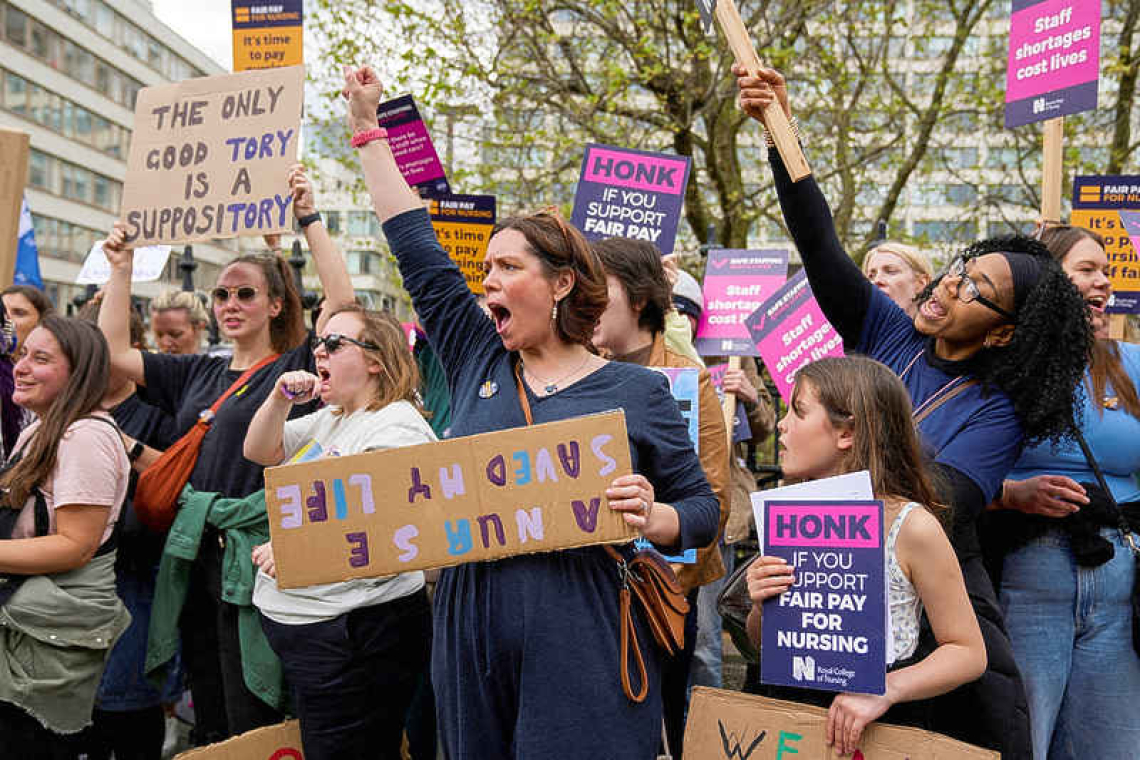LONDON--British Prime Minister Rishi Sunak sought on Thursday to end months of crippling public sector strikes by offering teachers, doctors and other workers pay increases of 6% and above, but warned it would cost billions that could mean cuts elsewhere. Sunak faces an election in the next 18 months against a backdrop of the highest inflation of any major economy, a near-stagnant economy and a legacy of scandals and missteps from his Conservative Party's 13 years in power. Opinion polls put the Conservatives far behind the opposition Labour Party. The prime minister said he had accepted the recommendations of independent pay review boards on wage rises for public sector workers, stressing that it was a final offer intended to end months of industrial action.
"This is a significant pay award, it's one of the most significant we've had in decades, and it is costing billions of pounds more than the government had budgeted for and that has consequences," Sunak said. The package will mean finding an additional 5 billion pounds ($6.55 billion) - 2 billion this year and 3 billion next year - from existing departmental budgets. "Today's offer is final. We will not negotiate again on this year's settlements and no amount of strikes will change our decision," Sunak said. Education unions immediately said they would call off planned strikes and recommend accepting the deal. But two unions representing doctors said the offer was unlikely to end strikes.
The pay increases are below Britain's current 8.7% inflation rate but are aimed at bridging the gap following the country's worst bout of industrial unrest in more than 30 years. Junior doctors will now get a 6% pay uplift and a lump-sum pay increase of 1,250 pounds, while teachers would get a 6.5% raise. Police and the military will get similar settlements.







